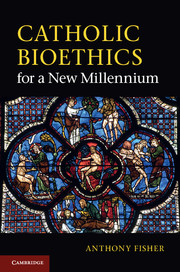Book contents
- Frontmatter
- Contents
- Foreword
- Abbreviations
- Introduction
- PART I How are we to do bioethics?
- PART II Beginning of life
- Chapter 4 Beginnings: when do people begin?
- Chapter 5 Stem cells: what’s all the fuss about?
- Chapter 6 Abortion: the new eugenics?
- PART III Later life
- PART IV Protecting life
- Index
- References
Chapter 4 - Beginnings: when do people begin?
from PART II - Beginning of life
Published online by Cambridge University Press: 05 June 2012
- Frontmatter
- Contents
- Foreword
- Abbreviations
- Introduction
- PART I How are we to do bioethics?
- PART II Beginning of life
- Chapter 4 Beginnings: when do people begin?
- Chapter 5 Stem cells: what’s all the fuss about?
- Chapter 6 Abortion: the new eugenics?
- PART III Later life
- PART IV Protecting life
- Index
- References
Summary
An influential book
In 2008 Nancy Pelosi, then Speaker of the US House of Representatives, was asked on Meet the Press about the status of the human embryo. She declared:
I would say that, as an ardent, practicing Catholic, this is an issue that I have studied for a long time. And what I know is, over the centuries, the doctors of the Church have not been able to make that definition … Saint Augustine said at three months. We don’t know. The point is, is that it shouldn’t have an impact on a woman’s right to choose … I don’t think anybody can tell you when life begins, human life begins. As I say, the Catholic Church for centuries has been discussing this.
Pelosi’s stance drew immediate fire from several US bishops and ultimately the Pope. But her belief that when life begins is unknown and probably unknowable, but that it likely begins well after conception, has been reflected in her own political life. Pelosi has voted in favour of human cloning, human embryo research, US funding of abortion abroad and against every attempt to restrict abortion, even the bill to ban partial-birth abortions. Where might this ‘ardent’ Catholic have found support for her thought that life begins well after conception?
- Type
- Chapter
- Information
- Catholic Bioethics for a New Millennium , pp. 101 - 130Publisher: Cambridge University PressPrint publication year: 2011



